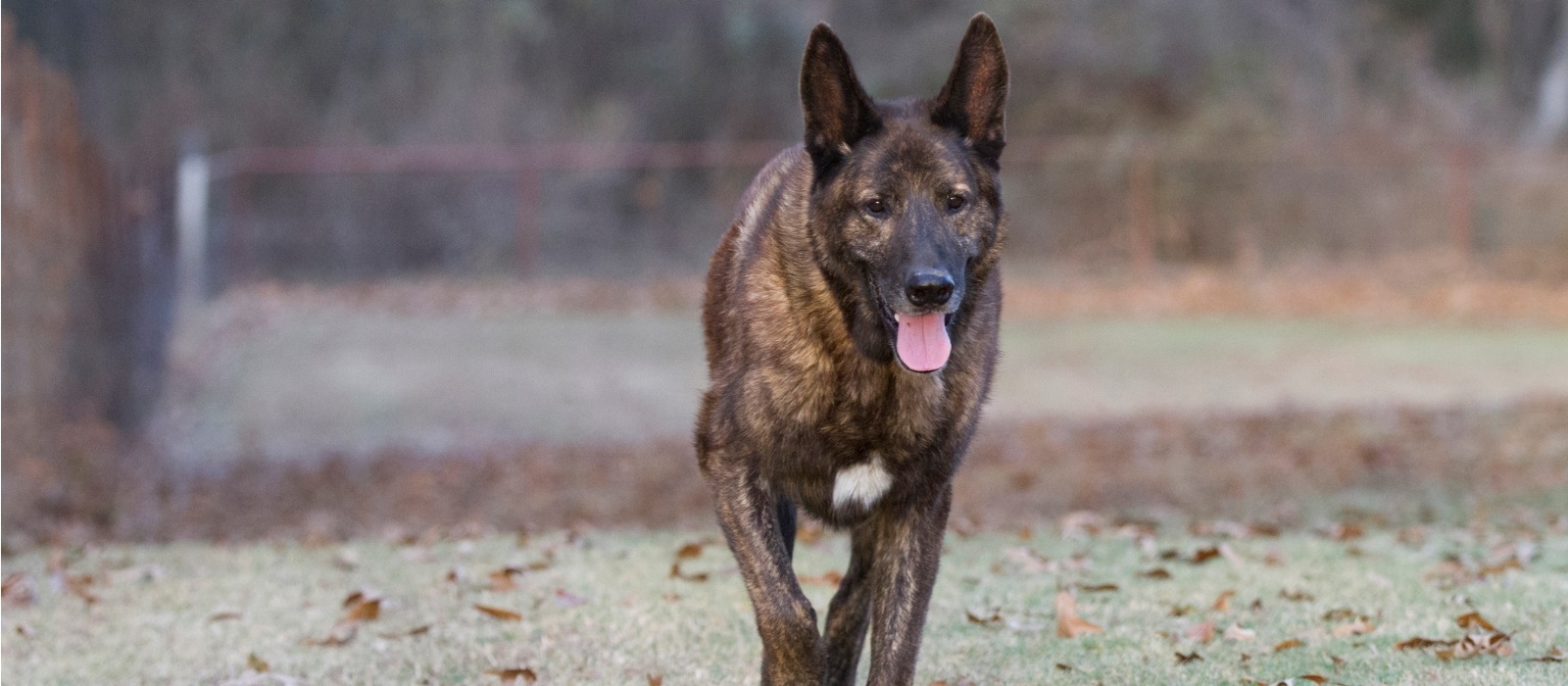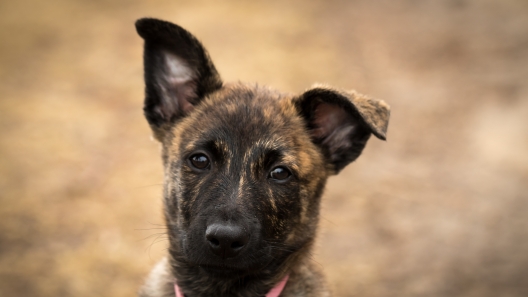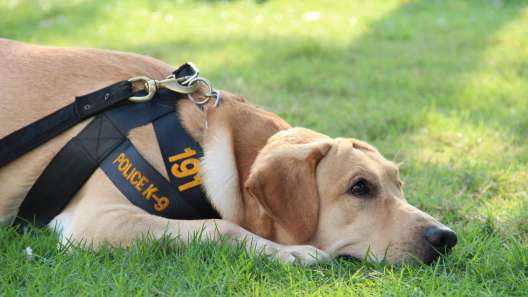-
Activity Level:
high
-
Shedding Level:
moderate
-
Grooming Level:
moderate
-
Trainability:
moderate
-
Good for Novice Owners:
moderate
-
Adaptability:
moderate
-
Kid/Pet Friendly:
often
-
Prey Drive:
moderate
-
Watchdog:
very alert
- Average Size: Medium
- Average Lifespan: 11-14 Years
- Registered?: aca, akc, other
Dutch Shepherd Dog Breed Information
Overview
Temperament
Adaptability
Health
Owner Experience
Grooming
Activity Level
Size
Life Span
Did You Know?
The Dutch Shepherd is a herding dog that originated in the Netherlands in the 1800s. It’s also known as the Dutch Herder or Hollandse Herder. The Dutch Shepherd was a versatile, intelligent, and independent working dog commonly used by farmers and shepherds to guard flocks of sheep, herd them, and keep them away from crops.
They were also known to be a reliable farmhand that would herd the cows for milking and pull milk carts. The Dutch Shepherd would also alert farm owners when strangers came onto the property and even kept the chickens away from the garden kept for use in the kitchen. These dogs were bred to be sturdy in order to adapt to herding over harsh rural regions and so that they had few demands in a sparse environment.
The first breed standard in the Netherlands was developed in 1898. The AKC currently recognizes the Dutch Shepherd a part of the Miscellaneous Class, which means the breed does not yet have full recognition. But, they have been given the Herding Group designation. Although they have maintained their herding and farm dog skills, the Dutch Shepherd is also a good fit for work as a police dog, search and rescue dog, tracking dog, and even a guide dog!
A Dutch Shepherd is a loyal, affectionate companion and a highly intelligent dog breed. They make a great addition to a family as they get along well with children and other animals. Their intuitive nature allows them to distinguish between when it’s time to work and time to play, which results in a focused, hardworking dog when on the job and a playful pooch when they’re not working.
These dogs are also active, alert, and watchful, which makes them a good watchdog. Because they were bred to be guard dogs and herding dogs, they may be suspicious or wary of strangers. As with any dog, socialization early and often results in a well-rounded dog that is confident in a variety of situations and with different people.
Because the Dutch Shepherd is a high energy working dog, they are generally not a good fit for apartments. Size-wise they can be a good fit as long as they are properly exercised, but it’s generally not recommended. These dogs thrive in larger homes with yards where they can run or on a farm or ranch where they can roam and work.
They tend to be a good fit for most climates. As with many dog breeds, they can be sensitive to extreme heat or cold. This dog breed also wants to be your partner, which means they don’t like to be left alone for long periods of time.
The Dutch Shepherd is a generally healthy dog breed. As with any dog breed, there are some health conditions to be aware of including hip and elbow dysplasia, thyroid issues, and goniodysplasia. Goniodysplasia is an eye defect that can result in small drainage openings, which can prevent eye fluid from outflowing normally. Asking the breeder about the genetic history of both of the parents and asking to see any health clearances can help allay potential concerns you may have.
High intelligence and an intuitive nature make the Dutch Sheperd highly trainable. This dog breed is able to work alongside their owners or deal independently with their tasks. But, obedience training is necessary to keep this dog mentally stimulated and to let them know what they are expected to do.
This dog breed has independence and a strong character that can be a challenge for first-time dog owners when it comes to training, which can result in an obstinate dog that makes its own decisions. Dutch Shepherds tend to be a better fit for active owners and families who have experience with dogs. First-time owners can do well with this dog, but enlisting the help of a professional dog trainer or enrolling in training classes is recommended for effective obedience training.
The Dutch Shepherd’s coat is a bit unique as it comes in three different types – short-hair, long-hair, and rough-hair. Common coat colors are gold brindle or silver brindle, but the rough-haired coat type can sometimes be so curly that it loses its brindle look. Each coat type has its own grooming needs.
The short-haired coat type requires brushing a few times a week and daily brushing during the heavier shedding sessions twice a year. The long-haired coat type only requires brushing about once a week. Depending on this dog’s environment and what they get into, they may need to be brushed more often. The rough-haired coat type tends to be quite curly and only needs to be brushed once a month. During seasonal changes twice a year, their coat also needs to be hand-stripped to help keep them comfortable.
For all coat types, bathing is on an as-needed basis. Also, if their nails aren’t being worn down naturally by their work and overall activity, you should trim them or file them to make sure they aren’t getting too long or are cracking. Checking in on their nails monthly and trimming as needed is usually sufficient. It’s also a good idea to regularly check their ears and carefully clean as needed. You want to make sure their ears are dry, free of wax buildup, clean, and clear of debris. This can help prevent ear infections.
It’s also important to care for your dog’s teeth and gums. Dental care for dogs is often overlooked, which is why dental disease is one of the most common health issues in dogs. By brushing your dog’s teeth or using an enzyme toothpaste every day, you can help prevent the tartar buildup that leads to dental disease and help protect your dog’s mouth! You can also use vet-approved dental hygiene chews or treats, or even a specially-formulated dental care diet, to help supplement your efforts.
Generally, it’s a good idea to get your dog used to grooming tasks as a puppy. By getting them used to it early and keeping it a positive experience, you can help make grooming a much easier process for both you and your dog throughout their life. It may even become a bonding time that your dog looks forward to!
This dog breed is a working dog with a lot of energy, so they need more than just a few walks every day. They will adjust their energy level depending on whether it’s time to work, play, or relax, but they need a lot of exercise and mental stimulation to be happy. The Dutch Shepherd is known for being a competent working dog, which means they need a job to do to be happy. That, paired with their trainability and high energy, make them a good fit for dog sports. Generally, Dutch Shepherds are a good fit for herding trials, tracking events, obedience, and more.
A fully-grown Dutch Shepherd usually stands between 21-25 inches tall at the shoulder and weighs between 40-75 pounds.
A Dutch Shepherd generally lives 11-14 years.
It’s no coincidence that this dog breed has an independent streak. They were often tasked with herding the sheep to pasture in the morning and bringing them back to the barn in the evening and expected to do so on their own without prodding or guidance.








